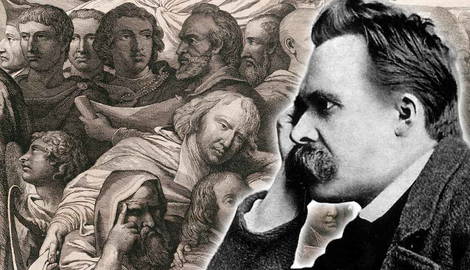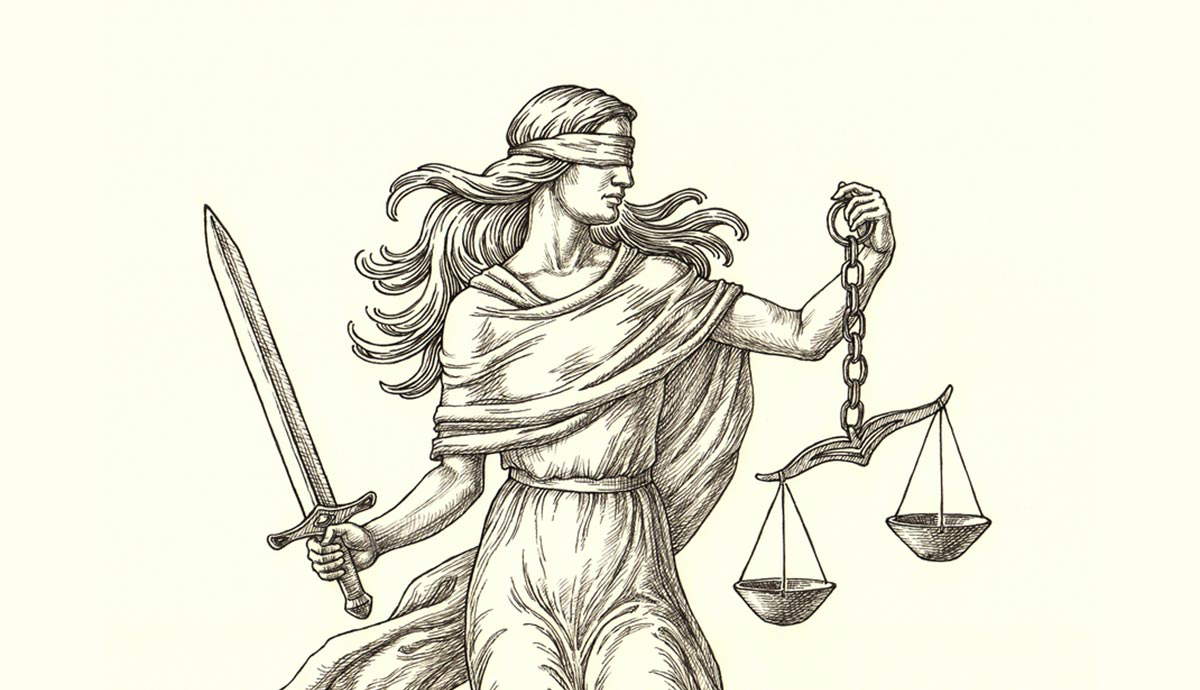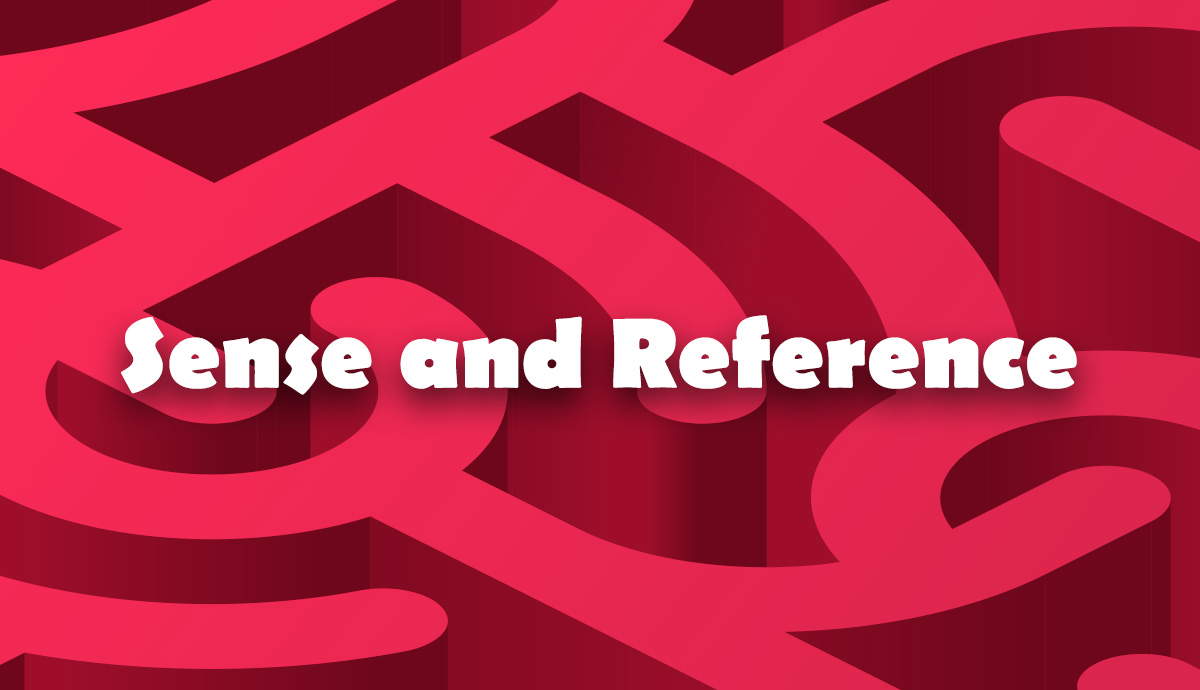
Determining what is the Good is often thought of as one of the goals of philosophy. This quest has famously been pursued by numerous thinkers throughout history. Among them, Plato and Nietzsche are often remembered for their quite distinct—yet equally as influential—views on the matter. However, the brain power that has been dedicated to the search for the Good clashes with the lack of consensus over the outcome. What is Good remains a mystery, which may lead one to ponder whether the quest is in itself ill-founded.
History of the Good

Assessing some of the practices and events that took place within history—such as the adoption of proscription lists, witch hunting, corporal punishment, religious and racial persecutions, or genocide—it is clear that the institutions that throughout centuries have attempted to dictate laws on morality are countless, and while some are still respected, others are nowadays repudiated, and some again are accepted in certain cultural environments but not in others.
Studies in history, politics, sociology, and most other disciplines that are concerned with the matter clearly show that moral laws are by no means universal, and what is currently despicable to one might not have been so to one’s ancestors or could not be to one’s contemporaries living on the other end of the world. Given the amount of thought that has been dedicated to the quest for the Good and yet the lack of a universally agreed-upon outcome, it is arguable that finding consensus around an answer is not only incredibly burdensome but likely an impossible endeavor.
However, starting from the crib of Western culture in ancient Greece, philosophers have always actively taken part in the quest by engaging in a strenuous attempt to discern good from evil and morality from immorality. Plato argued that there exists something such as pure Good, which is completely and in all respects distinct from evil. On this account, Good exists in a perfect and immutable form, independently from space or time. A similar perspective can be found in successive philosophical, political, and religious movements, such as Christianity, which is often mentioned—and praised or criticized as much as platonic Good—for its unquestionable success in dictating rules of morality.
The Dogma of Platonic Good

Plato has famously written several dialogues that take the form of Socratic inquiry (a type of inquisitive questioning that Socrates used to perform as his mode of philosophizing). In his dialogues, Plato investigates several themes within politics, ethics, and philosophy, amongst which is that of the Good. Plato’s philosophy proposes the existence of truths that lie beyond the human world and that can be accessed through deep philosophical inquiry. Such truths are commonly known as Platonic Forms and constitute an overall objective set of virtues that can be accessed through a profound philosophical inquiry and with the aptitude for critical thinking. On this account, philosophy is thought to allow one to become aware of the purest forms of truth and to act in the most virtuous ways. This is what Plato refers to when, in “The Republic,” he argues that the best rulers of society would be philosophers—commonly known as philosopher kings—as they are the best acquainted with the purest form of Good.
Within Plato’s framework, the concept of virtue consists of a dogmatic notion, i.e., there exists a consistent account of what virtues and vices are, together with strict rules that can be followed to obtain awareness of the purest form of Good. Dogmatism is arguably a secure form of pursuit of goodness, as it allows one to rely on criteria that objectively discern it from evil.
Throughout history, dogmatism has been proposed and imposed through philosophy, politics, and religion. For example, in the past, as much as nowadays, countless actions were performed in the name of the will of God. Hence, there remains to ask how one can be certain of the will of the God that they believe in and how one can cope with the fact that the Gods of different religions—or the ones within one same religion—have radically different perspectives on what is Good. In his Euthyphro, Plato himself exposes the dilemma of religious morality and how one can ensure that what they do is what the God(s) consider good, pious, and virtuous. Hence, he proposes the theory of Forms as a solution to discern virtues and vices.
The Judge of Morality

If the will of a God is insufficient to determine the universal nature of Good, how can we judge if people behave morally, and how can we ensure that our own behavior is moral? The imposition of an authority that systematically discerns moral behaviors from immoral ones imposes a great limit on human freedom. Common sense is also to be excluded, as people constantly disagree on matters of morality, and it often seems close to impossible to solve disputes concerning ethical dilemmas in a way that universally satisfies the values of all.
While the security on the nature of the Good proposed by dogmatism may be appealing to some, if one is to enquire about goodness in its true nature, the answer provided by dogmatism will likely be dissatisfying, as a strict and unvaried set of rules would never be able to account for the multiplicity of moral perspectives existing throughout space and time.
The hypothesis that there might not be any objective morality appears as the only way to cope with the impossibility of defining it. On this account, the fact that people have ethical disagreements does not entail that some behave morally while others do not, but rather that humans uphold different values and strive to behave according to them.
Nietzsche and Morality

Nietzsche is renowned for his criticism of dogmatism and platonic Good. His rejection of morality is one of the most prominent and well-known aspects of his philosophical endeavor. Famously, in the introduction of “Beyond Good and Evil,” he argues that the dogmatic search for the Good is driving the decline of human freedom. Condemning Plato’s dogmatism by defining it as the original corruptor of critical thought in Western society, Nietzsche argues that good and evil, as much as truth and untruth and other opposing virtues, are not distinct opposites but rather coexist in a state of conflicting harmony with one another, in which none of them corresponds to any objective set of values.
“On the Genealogy of Morality” is arguably the work that makes the largest contribution to determining Nietzsche’s view on morality. He attacks the contemporary quest for the Good by appealing to the constant variation of the virtues that humans uphold. The fact that the Good is not static but rather subject to the values held by each individual or group feeds into Nietzsche’s perspectivist moral theory, according to which what is the Good is a matter of cultural and social influence rather than objectively predetermined. Hence, Nietzsche condemns every philosophical, religious, or political current that imposes limits on morality and that systematically discriminates between good and evil. Such an account is not only an unrealistic portrayal of the nature of morality but is also a limit to freedom, enforced through the threat of punishment, the insinuation of a sense of guilt, and the promise of rewards.
Does Objective Morality Exist?

It may be argued that if Good is variable in space and time and constantly subject to individual, societal, and cultural interpretation, the philosophical endeavor that has occupied the minds of prominent thinkers for centuries may be nothing but the pursuit of an unattainable goal.
A critical eye on the world we live in seems to prevent one from accepting that Good can ever be objective. However, one may be resistant to welcoming Nietzsche’s ethical theory, as it could appear as an invitation to abandon all forms of natural prosperity for morality. Arguably, every human being lives according to the values that they, or the society they live in, upholds and acts according to what appears good and moral to them. It follows that abandoning the quest and disposing of the possibility of finding goodness might be deceiving and in itself immoral.
However, Nietzsche does not intend his rejection of dogmatism to represent an encouragement to abandon the quest for morality, but rather to approach his philosophical contributions as an invitation to observe it in its overall complexity. According to Nietzsche’s moral philosophy, in a society that values freedom of thought and democratic engagement, dogmatism and pure Good may provide some security. However, they cannot be considered the answer to the problem.
Should We Give Up on Morality?

Critics of Nietzsche argue that his account of morality could lead one to reject the notion of the Good and abandon the quest for a life that is free from the bonds of ethical values and morally anarchic overall. However, while Nietzsche famously argues that the notion of Good is far from objectively evident, it would be misleading to claim that he supports an abandonment of the quest for morality.
Instead, Nietzsche’s work on moral philosophy is incredibly influential and core to modern ethical theories. By recommending that one takes distance from dogmatism, Nietzsche demands that humanity begins to question what the value of Good is according to a perspectivist view. Indeed, perspectivism is one of the main contributions that Nietzsche has made to ethics and philosophy overall. Within the perspectivist framework, one is encouraged to avoid conceiving Good as a timeless and static notion but rather to explore Good as a variable construct that is subject to culture, space, and time. Hence, an overall abandonment of the quest would be counterproductive, while a continuous search paired with the awareness of the complexity of morality and the impossibility of a conclusive outcome will certainly be beneficial to the understanding of human nature.










